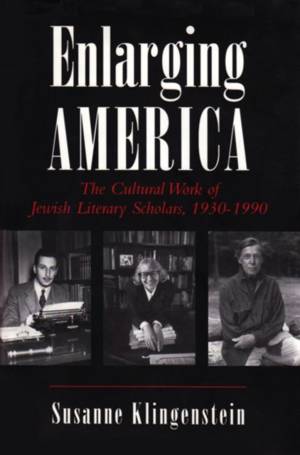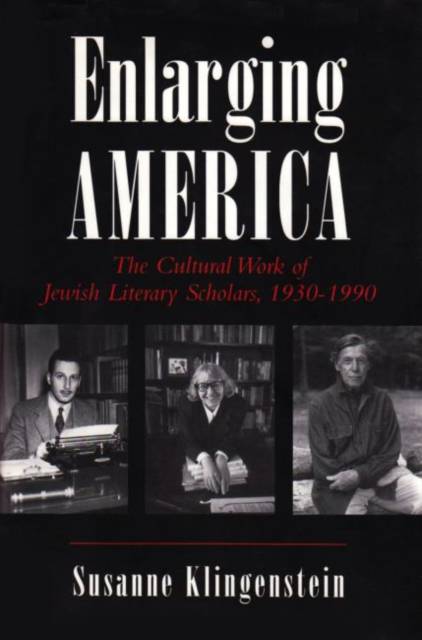
En raison d'une grêve chez bpost, votre commande pourrait être retardée. Vous avez besoin d’un livre rapidement ? Nos magasins vous accueillent à bras ouverts !
- Retrait gratuit dans votre magasin Club
- 7.000.000 titres dans notre catalogue
- Payer en toute sécurité
- Toujours un magasin près de chez vous
En raison de la grêve chez bpost, votre commande pourrait être retardée. Vous avez besoin d’un livre rapidement ? Nos magasins vous accueillent à bras ouverts !
- Retrait gratuit dans votre magasin Club
- 7.000.0000 titres dans notre catalogue
- Payer en toute sécurité
- Toujours un magasin près de chez vous
46,95 €
+ 93 points
Description
In this groundbreaking study, the author examines the gradual opening of literary academe to Jewish faculty and analyzes the critical work Jewish scholars undertook to achieve their integration into an exclusive WASP domain.
Beginning her story at Harvard University, Klingenstein describes the unique intellectual paths taken by scholars such as Harry Levin, Daniel Aaron, M. H. Abrams, Leo Marx, and Sacvan Bercovitch. At Columbia University, Klingenstein argues that the singular Jewish presence of Lionel Trilling shaped the minds and inspired the careers of Jewish intellectuals as different as Cynthia Ozick, Norman Podhoretz, Steven Marcus, and Carolyn Heilbrun. Once Jewish scholars had attained a strong foothold in literary academe, pioneering spirits such as Robert Alter and Ruth R. Wisse turned their attention from English and American to Jewish literature in Hebrew and Yiddish. Written as an interconnected series of twelve lucid and compelling portraits of major figures in the history of American literary criticism, this book illuminates the element of serendipity in culture-formation and exposes the social and intellectual forces at work in cultural change.Spécifications
Parties prenantes
- Auteur(s) :
- Editeur:
Contenu
- Nombre de pages :
- 528
- Langue:
- Anglais
- Collection :
Caractéristiques
- EAN:
- 9780815605409
- Date de parution :
- 01-12-98
- Format:
- Livre relié
- Format numérique:
- Genaaid
- Dimensions :
- 152 mm x 229 mm
- Poids :
- 907 g

Les avis
Nous publions uniquement les avis qui respectent les conditions requises. Consultez nos conditions pour les avis.






